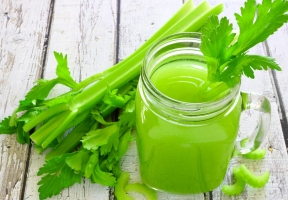

The free time “lockdown” has brought to households across the nation has many spending more time at home, on their phones and on social media, looking up new diets or recipes to stay healthy. However, certain foods and ingredients that are trending on social media as “healthy” can be extremely misleading and even harmful. New York-based Board-certified internist, Dr. Sunitha D. Posina, has listed some of the most well-known ‘health foods’ and how they might not always live up to the hype.
Hard seltzer
Hard-seltzers have grown in popularity as a ‘good choice’ for health-conscious consumers with low carbohydrate and calorie content. But in reality, a refreshing alcoholic drink that’s lighter in calories and feels less filling may make it easier to imbibe more. No matter the calorie count, overconsumption of alcohol and binge drinking has a long list of long-term health effects.
Plant-based alternatives to meat
While some can be higher in certain vitamins and minerals than animal meat (they’re added during processing), they can also be higher in sodium and carbohydrates. However, not all meats are made the same. Always check the nutritional label to avoid being misled into buying a product you think is better for you than meat.
Celery as a miracle vegetable
Despite what social media says about the ‘miracle juice’, there isn’t any evidence to support the end-all-be-all claims (prevent cancer, lowers cholesterol, prevent digestive disorders, help lose weight, and promote clear skin) influencers and celebrities made. Celery juice is virtually void of fiber, which is what helps make people feel full and aids weight loss, thanks to the juicing process. While drinking the juice doesn’t do any harm per se, it’s not the magical detoxifier, and cleanser everyone thinks it is.
Gluten-free when you don’t need to be
To imitate the flavor and texture of wheat gluten, companies will use corn, oat, and rice flours, which aren’t necessarily healthier for you. Suppose you don’t have celiac disease or gluten sensitivity. In that case, you might end up with nutritional deficiencies as fortified bread, whole wheat and cereals are a significant source of B vitamins and fiber.
Dr. Sunitha D. Posina, M.D. is a renowned board-certified physician in Internal Medicine in Stony Brook, New York.











